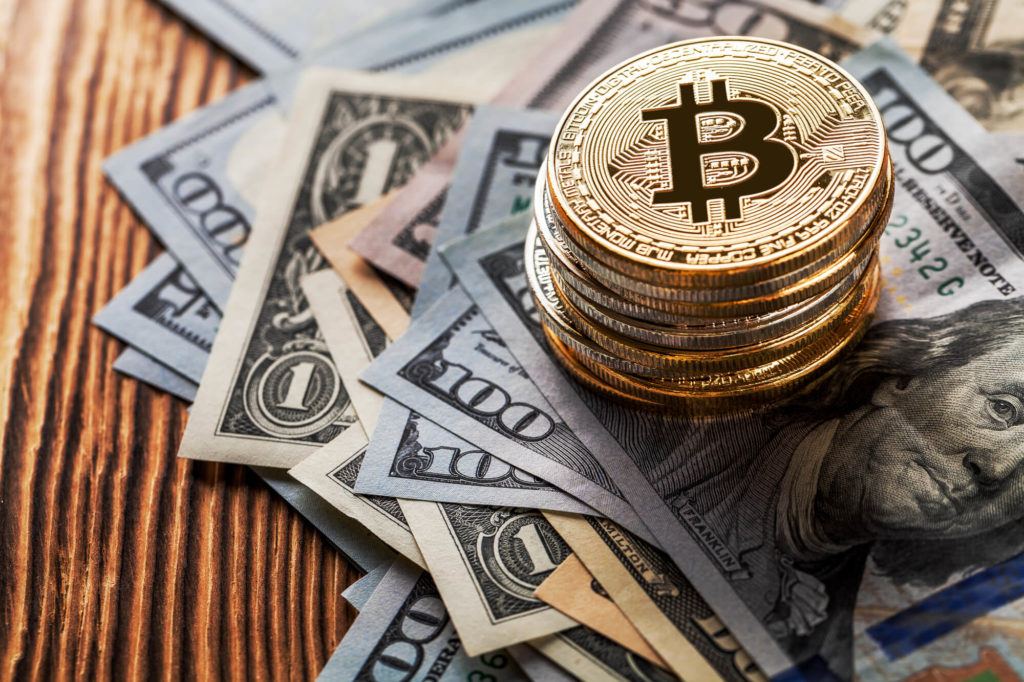Crypto
The long-term benefits of investing in crypto vs. real estate
When choosing between cryptocurrency or real estate investments, ask yourself which would benefit you the most in the long run. Real estate has hidden costs and high buy-in costs but its upsides include stability and tangibility, peripheral benefits, low risk and predictability. Crypto is intangible, vulnerable and unstable but it’s also mobile, untraceable and has a huge market potential.

Whether you’re a skeptic or a true believer, you have to admit one thing: cryptocurrency is hot. With as many as 200,000 Bitcoin millionaires already minted, and who knows how many more coming down the pipe as more coins emerge, cryptocurrency is that rare opportunity to get in on the ground floor of something big.
But like any potentially huge payoff, crypto comes with huge risks. Meanwhile, real estate, the oldest, most traditional investment of all, quietly, consistently appreciates in value, with minimal risk. Of course, it’s nowhere near as sexy as cryptocurrency, though it doesn’t quite offer as much explosive potential, either. If crypto is the hare, real estate is the tortoise. And do you remember how that story ended?
Let’s look at the pros and cons of real estate and crypto, and assess their long term prospects.
The downsides of cryptocurrency
Intangibility
Cryptocurrency doesn’t really, technically exist, strictly in the physical sense of the term. Sure, one could argue that all money is more or less intangible at this point in history, but if you wanted to withdraw your life savings, all you have to do is go down to the bank, fill out some paperwork, and walk away with the cash. With cryptocurrency, that’s just not an option. Crypto only exists in the cloud, which can make some people uncomfortable.
Vulnerability
That intangibility can also leave it vulnerable to theft by hacking. Earlier this year, $40 million in Bitcoin was stolen from a single exchange, and there are many other examples of huge bitcoin thefts. If you can’t hold it in your hand, how can you secure it?
Instability
Unlike real estate, crypto is a wildly unstable market. Look, for example, at Bitcoin, the crypto with the most mainstream name recognition. In January 2017, Bitcoin broke the $1,000 mark for the very first time; in December of that same year, it had already rocketed past $20,000. A year later, on December 2018, it had fallen below $3,500. Investing in a market that fluctuates that wildly is asking for heartburn, if not full-on bankruptcy.
The upsides of cryptocurrency
Mobile and untraceable
With crypto, it’s fast and easy to transfer funds anywhere in the world, without leaving any trail for nosy meddlers or the taxman. If you believe we’re heading towards a borderless economy, or place a high value on radical freedom, crypto is the future.
Huge market potential
Buying into Bitcoin at $20,000 and then watching it sink would have been a terrible experience. But what if you bought in at $1,000, and sold at $20K? Unstable markets can ruin you, but they can also make you, and crypto is one of the few markets with that kind of potential. And it’s still the very early days of cryptocurrency; sooner or later, one of the coins is going to be accepted as the gold standard. Buying in now means you’re along for the ride of a generation.

Now let’s go from that starry-eyed hyperbole to the sober reality of real estate. There’s a reason Mom and Dad are always pushing us to buy a house; it’s the safest, most tangible investment out there. But that doesn’t mean it’s the perfect one.
The downsides of real estate
Hidden costs
Unless you’re paying cash, you’re going to have to pay interest on your mortgage, and then there’s everything from home inspections and closing costs. The market price of a home is just a starting point; in the end, you’ll have paid tens of thousands more than the sticker price. For buyers who haven’t done their research, these costs can come as a very unpleasant surprise.
Dealing with tenants
One of the biggest upsides of real estate is its potential to generate passive income if you rent your property out. But dealing with tenants can be a pain in the neck, though you can mitigate those risks by using a good agent to screen potential renters. An experienced property manager can also make your landlord experience a little less painful, but that doesn’t come cheap; traditionally, a property manager works for a percentage of collected rents.
High buy-in costs
Real estate is a mature market so, unlike Bitcoin, you aren’t going to see your property appreciate 2,000% in a single year. There’s no “getting in on the ground floor” in real estate: buy-in is expensive, with the median home price in the U.S. sitting at just under $230,000, with buyers typically putting 20% down upfront.
That’s a high price to pay, but it’s worth it.
The upsides of real estate
Stability and tangibility
When you buy property, you’re buying into a very stable market, that’s been heading consistently upwards since, well, forever. That’s because, unlike crypto, real estate is a tangible, physical investment with a limited supply. As the saying goes, they aren’t making any more Manhattan real estate. That, more than anything else, is what makes real estate such a great investment.
Peripheral benefits
And just as there are hidden costs to real estate investment, there are hidden benefits. Not only can you deduct the interest on your mortgage, but some investors can also use depreciation to hugely reduce their tax bill. Investors can even use 1031 exchanges to upgrade their portfolios without worrying about capital gains taxes. Mom and Dad aren’t the only ones who want you to buy a house; Uncle Sam does, too.
Low risk and predictability
Of course, like any investment, there are risks with real estate. Just ask any property investors who lived through 2008. But those risks can be mitigated if you work with a knowledgeable real estate agent and do your homework. While crypto might be an exciting investment right now, real estate is still the safest. In a decade or two, you have a pretty good idea of how much your real estate will be worth. Can you say the same about crypto?
(Featured image by DepositPhotos)
—
DISCLAIMER: This article expresses my own ideas and opinions. Any information I have shared are from sources that I believe to be reliable and accurate. I did not receive any financial compensation for writing this post, nor do I own any shares in any company I’ve mentioned. I encourage any reader to do their own diligent research first before making any investment decisions.

-

 Markets5 days ago
Markets5 days agoSilver Dips Sharply, While Gold Gains Amid Mixed Stock Market
-

 Crowdfunding2 weeks ago
Crowdfunding2 weeks agoEvenFi Launches Run-Off Service to Protect Investors as Crowdfunding Platforms Exit
-

 Africa2 days ago
Africa2 days agoTunisia Holds Interest Rate as Inflation Eases, Debate Grows
-

 Crypto1 week ago
Crypto1 week agoEthereum’s Growing Capacity Puts Pressure on Layer 2 Platforms

























